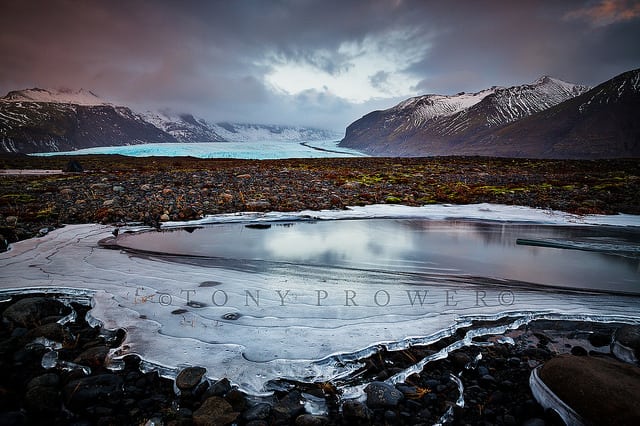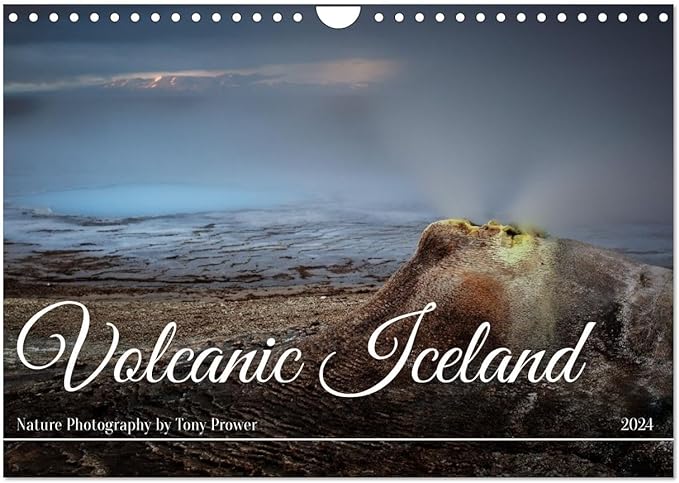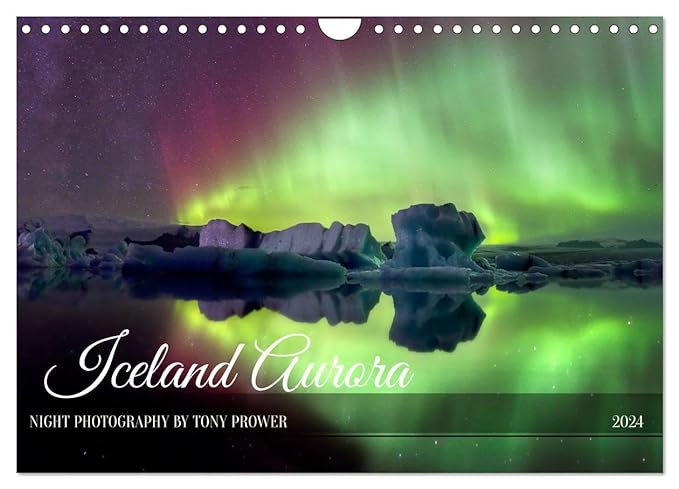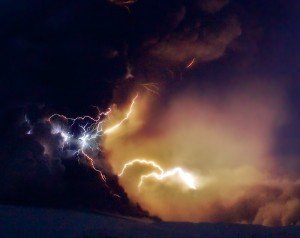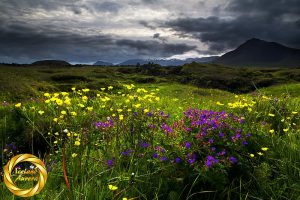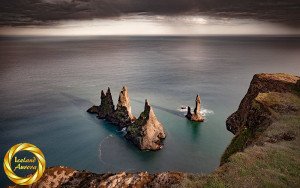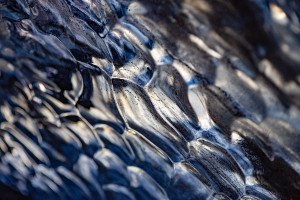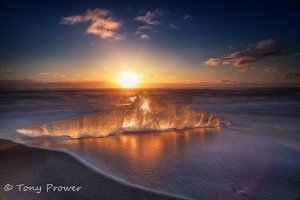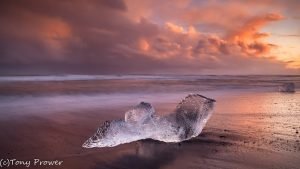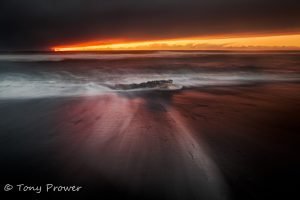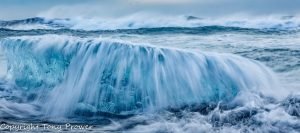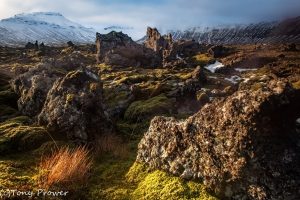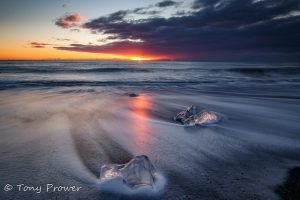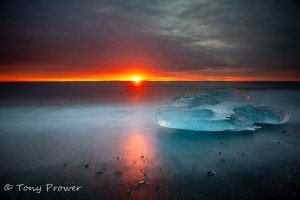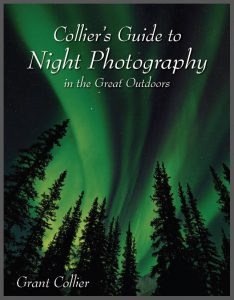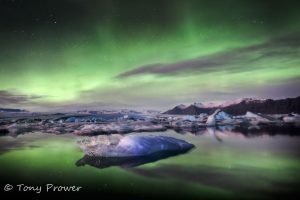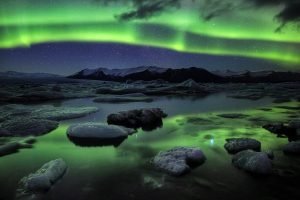Taken on January 5, 2017
Location: Between Skafatfell National Park and Svinafellsjökull. The view is over Skaftafellsjökull glacier tongue and we are about a kilometer from the ice.
According to our Geologist, photo-guide Owen Hunt,
“The moraine is relatively recent (post Ice Age, less than 8,000 years old) and has been modified by meltwater rivers which have flowed from the snout of the glacier. There are many kettle holes and kettle hole lakes in the area formed when blocks of ice break from the glacier snout, get covered in moraine and slowly melt. This leaves a kettle hole and if it fills with water it becomes a kettle hole lake.
This area was probably under ice maybe 600-800 years ago or maybe longer but not that long ago geologically.
The kettle hole blocks of ice broke off from the snout of the glacier and may have been moved by water or they could have been dead ice that had become detached from the glacier snout and then buried.
The glaciers in this area stretched much further from the mountains and were much thicker than they are today. They were more likely to be blocks broken from the glacier or dead ice. These were then covered in more deposits which were probably brought down by meltwater streams from the retreating ice.”
Background
This was early January on our Winter workshop. We were making our way down to the glacier tongue at Svinfallsjökull when I spot the colour in the clouds above Kristinatindur. Unfortunately, Kristinatindur is the peak that is hidden by clouds above the blue glacier tongue.
Focal length
The strong background of Kristinatindur and the thin glacier tongue retain quite a bit of detail with a 24mm at this distance.
Aperture
Because of how close I was to the foreground ice (see “Composition”) f/14 was chosen because sharpness is important right through the frame, from the edges of the ice to the scratches on the mountains. From memory, my lens was set to f/11 hyperfocal (favouring the background – because the lines are finer in the background).
Composition
I know these little ponds well and I enjoy some of the beautiful curves and random shapes made by the ice around the edges. If you pick the right spot, there is always a lot to see in the immediate foreground.
I didn’t enjoy composing this shot. I like to include whole shapes and I don’t like to see white objects disappearing out of the frame like this. If I back off to include the whole pond, I lose the close detail on the edge of the ice and upset the proportions, i.e. too much black rock. The proportions could have been restored somewhat by raising the tripod, but again I am losing that desirable ice detail in favour of shape. Also being low down produced a much richer reflection.
I enjoy looking at it though. The immediacy of the foreground edges and lines are intimate and it is easy to forgive the white objects disappearing out of frame.
Magic Cloth
Long exposure = 4 seconds.
Because of the foreground ice and reflection, this is not a big dynamic range scene. My starting exposure (AV mode) was 2 stops over. The photo could have been achieved without any filters or Magic Cloth, but the foreground would have required some brightening.
This was a very simple karate chop (after half second) followed by slowly raising the cloth over the remaining 3 & half seconds. Half a second on the sky was almost losing the detail and the highlights had to be brought back a little in LR – although there was no clipping. The extra exposure time on the foreground was almost perfect and has required very little processing in terms of luminosity and gave me lots of options regarding color saturation and clarity.
Post Processing
Here is the unprocessed image. As you can see the foreground has enough exposure for a whole range of processing options. The staged exposure of the magic cloth has fully exposed the most immediate foreground giving the best possible sharpness.
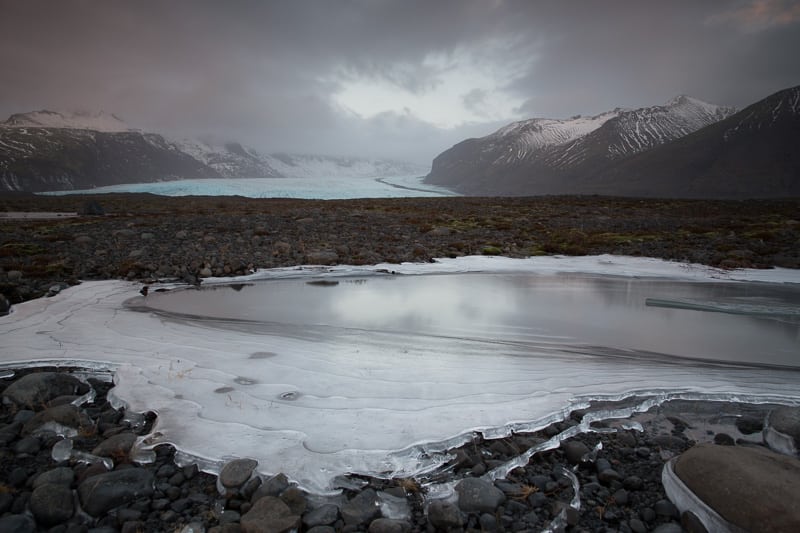
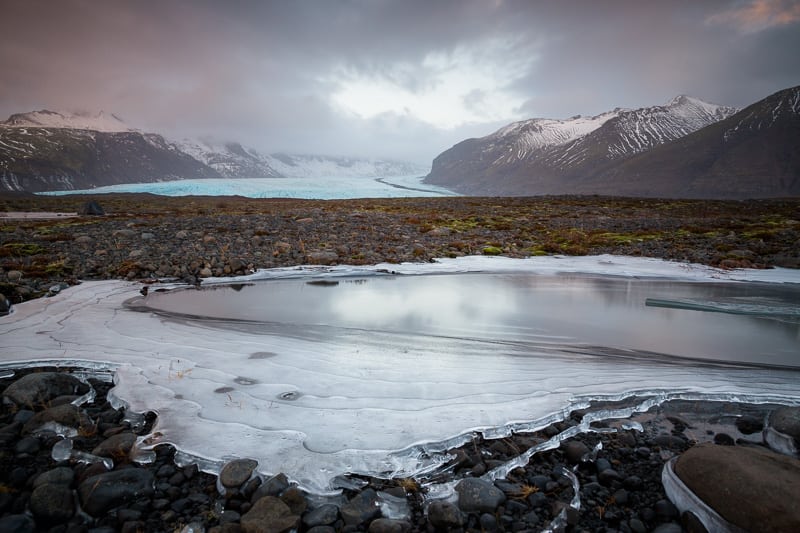
This image is the Lightroom preparation. It is unusual for me to export a full contrast file, but because of the exposure control, a contrast boost had no effect on image quality – no degradation. I adjusted the clarity, slight Chromatic Aberration adjustment, and slight noise reduction.
